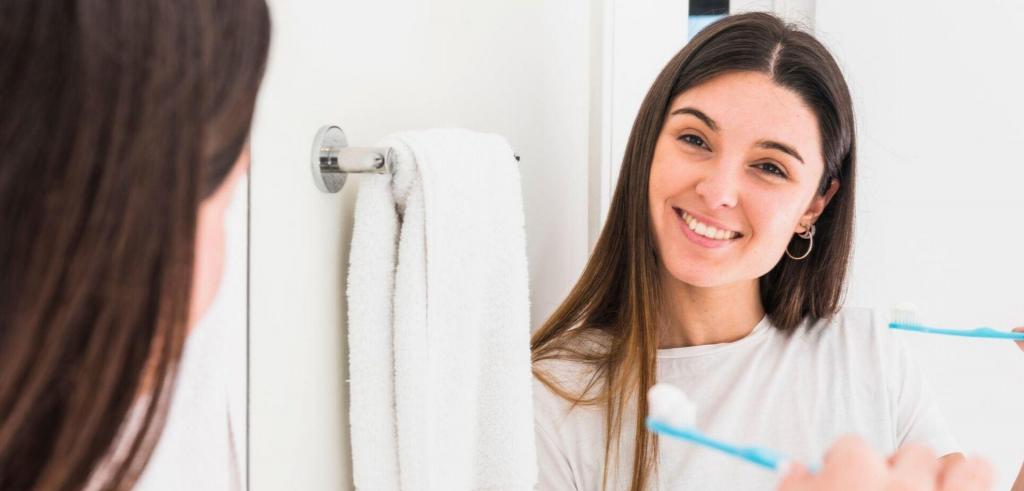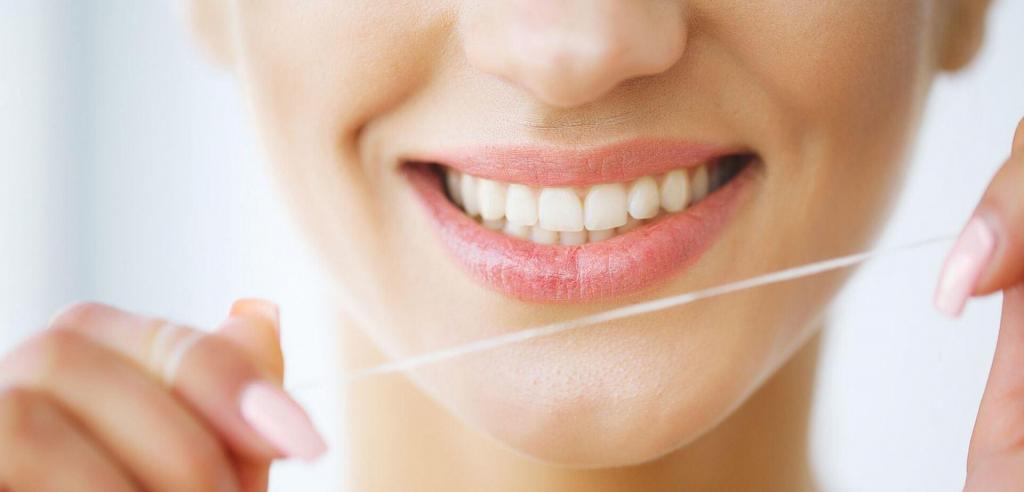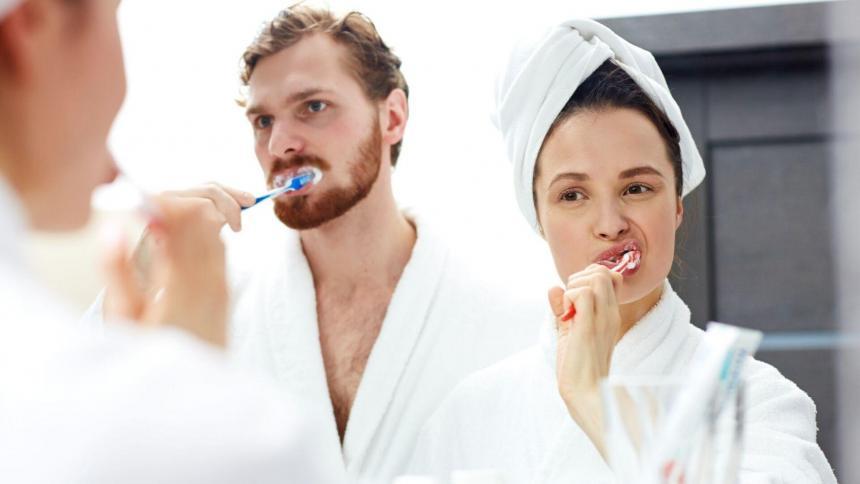You've been brushing your teeth since you were a child, several times each day. On the surface, there is nothing difficult about it, brush, paste, etc. But are you doing it right? Here are our dentists' tips on how to brush your teeth properly.
The ABCs of tooth brushing
You should brush your teeth after every main meal. If this is not possible, rinse your mouth with liquid or even water. Remember that you should clean your teeth thoroughly at least twice a day.
Importantly, after a meal does not mean that you should run for your toothbrush immediately after lunch, quite the opposite. Some foods have a low pH, e.g. citrus fruits; by brushing your teeth immediately after eating them, you rub the citric acids into the enamel. Therefore, wait 20-30 minutes after a meal.
The biggest mistake is neglecting to brush your teeth after dinner. This is when food leftovers linger in the mouth throughout the night. These in turn are responsible for the growth of bacteria that lead to tooth decay.
And what do your teeth "like"? Read our article on products to make your smile whiter and healthier.
Time is of the essence
You've fallen asleep for work, or maybe you're in a hurry to get to a meeting. You take a quick shower, brush your teeth and run out of the house. If you haven't spent a minimum of three minutes with your toothbrush in your mouth it's a big mistake. Why? Because you are not able to clean your teeth thoroughly, so that, for example, food debris can still find its way into the spaces between your teeth. This in turn can lead to cavities.
How do you make sure you have brushed your teeth long enough? You can easily find small hourglasses in pharmacies that measure the time. Also, more and more electric toothbrushes have a built-in mechanism that tells you when you have brushed your teeth long enough.

How do I brush my teeth properly?
On the face of it, this is a very simple task. However, many people make the big mistake of concentrating only on the central part of the tooth, forgetting about the gingival and tongue side. Plaque build-up there causes, among other things, inflammation of the gums.
So how do you brush your teeth properly? There are quite a few techniques, we present the most popular ones:
- The circular method (Fones method) - you place the toothbrush against the teeth at a 90-degree angle and make circular motions. Its disadvantage is the difficulty of cleaning the surfaces where the teeth meet.
- The rotary-sweeping method (roll) - you position the toothbrush at a 45-degree angle and use a rotary-sweeping motion to clean the teeth from the gums towards the top of the teeth, then repeat the motion on the crowns.
- Vibrating method (Bass method) - important, for this method you must only use a soft-bristled toothbrush. You position it at a 45 degree angle and make small horizontal vibrating movements. For this method to be effective, we recommend that you do 5 repetitions of 30 movements. It is important not to "scrub" your teeth, this can damage the enamel.
Also, don't forget to clean your tongue, the palatal part of your mouth and replace your toothbrush. You should have a new one at least every 2-3 months.

Brushing your teeth properly is not enough
Sufficient brushing time and technique are not enough. Brushing only removes bacterial plaque and food debris from 60% the tooth surface. You still need to take care to clean the interdental spaces. This is very important if you want to avoid tooth decay, because this is where it most often starts.
The solution is to floss. For those who have gaps between their teeth, we recommend using single-bristle toothbrushes.
Effects of improper tooth brushing
If you have not paid attention to brushing your teeth properly for many years, you have to reckon with the already mentioned decay, but also with gum damage, root exposure and damage to the enamel.
Remember that if you want to enjoy a beautiful smile you should also visit the dentist's office regularly. This will prevent major cavities, lengthy treatment and additionally save you money.
If you have questions - write to us

